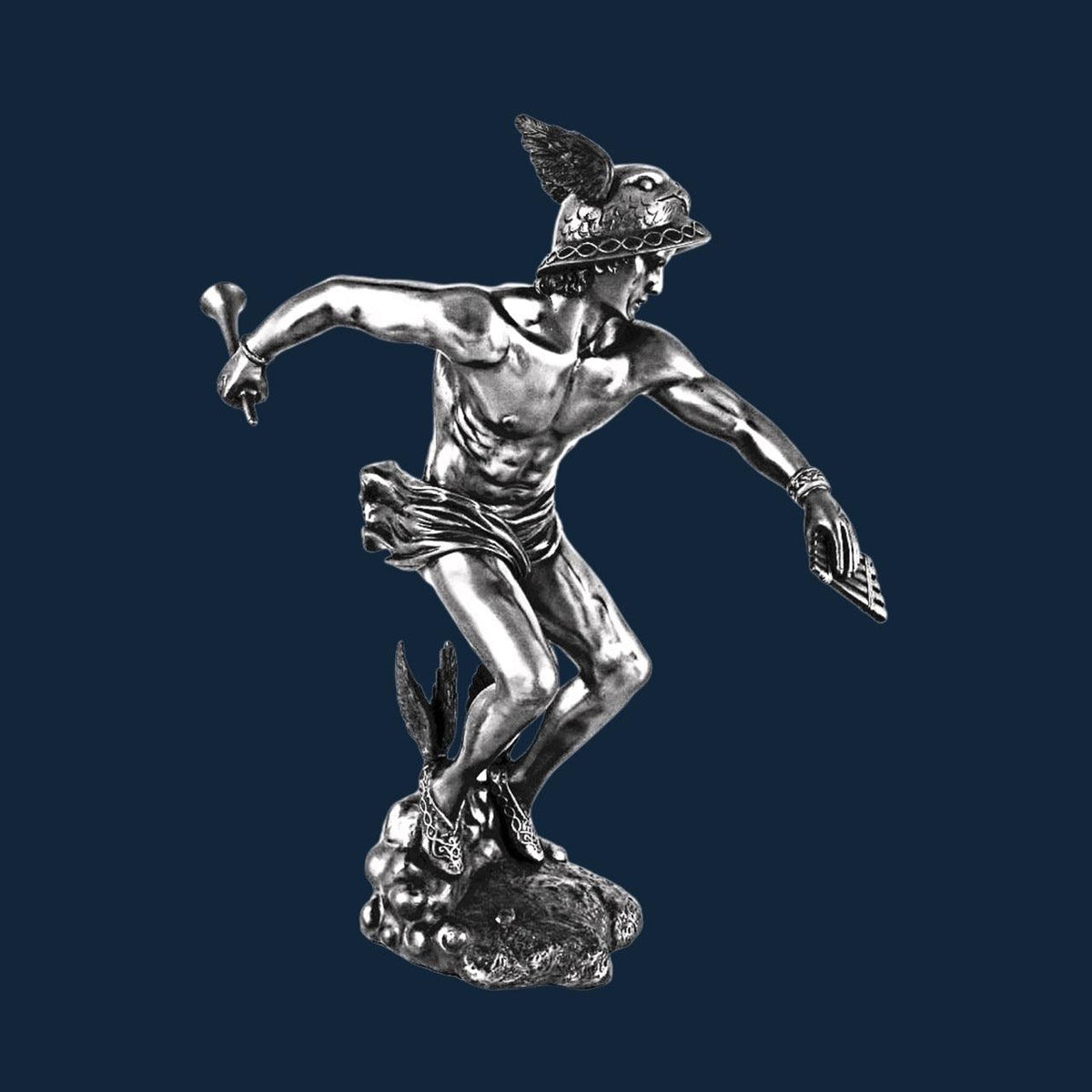The Origins and Beliefs of Hermes the Messenger
Jun 26, 22

The Origins and Beliefs of Hermes the Messenger
Hidden in the corner of a library shelf, among countless dusty tomes, sits a small book with foxed pages. Its leather binding is old and worn, but on opening it the reader finds an introduction so intriguing that they cannot put it down.
It tells the story of the ancient Greek god Hermes, who was known as the messenger of the gods and also as a trickster figure liable to deceive those around him for his own amusement. Moreover, this book reveals that although such information had once been commonplace among scholars, by the early 19th century almost all knowledge of this deity had been forgotten.
Yet hidden away in that library shelf was one obscure book which revealed its secrets once more. This article explores the origins and beliefs concerning Hermes in ancient Greece and modern society today.
Who was Hermes?
Hermes was the god of commerce and communication, representing everything from travel and trade to diplomacy and language. Although he was also the patron of herdsmen, flocks and livestock, his domain was not solely rural but also encompassed the city, where he protected the exchange of goods and facilitated the flow of information.
Hermes was also a psychopomp – a guide of souls – in the sense that he was responsible for bringing the newly deceased to the entrance of the underworld. He also served as the messenger of the gods, a role he shared with his twin brother, the god of death, dreams and creative inspiration, Hades.
As a god of communication, words were both his primary tool and his primary focus, which has led to Hermes being described as the ‘language god’. It is for this reason that he is connected with the invention of the first ‘alphabet’.
Why did ancient Greeks worship Hermes?
Ancient Greek references to Hermes show that his worship was associated with that of the other Olympian gods. His role as a god of communication was also significant to the Greeks as a people since it was their primary means of interacting with their neighbours and beyond.
By the 4th century BCE, when written sources begin to mention Hermes’ role in religious practices, he had acquired many of the attributes of other deities, such as Apollo and Dionysus. He became associated with Heracles and Pan and was a patron of the young and of athletic endeavours, such as gymnastics.
The earliest evidence for Hermes’ worship comes from the Mycenaean Period (c. 16th century BCE) and the Homeric Epics (c. 8th century BCE), but he was not universally worshipped throughout the Greek world until the 5th and 4th centuries BCE, when he became identified with the god Apollo.
The spread of his cult is connected with the rise of commerce, which began to flourish in 4th-century-BCE Athens. In the city, Hermes was worshipped at the agora (marketplace) as the god of commerce.
The Origins of Hermes and His Beliefs
The origins of Hermes are found in the ancient world of the Near East. All that is known about Hermes comes from the Greek language, which provides the only means of accessing the Indo-European past.
We, therefore, know that Hermes was a god of communication long before he was a Greek god. He was a member of the group known as the ‘Throng of Gods’, all of whom have strong links with the cultures of Mesopotamia, Egypt, the Hittites and other ancient Near Eastern cultures.
These deities could be found in many other cultures across the world, but they are linked with the Throng of Gods due to their origins in the ancient world.
For example, the Chinese god of commerce and good fortune, Guan Yu, has been linked with the Throng of Gods, as has the Roman god Mercury, the Aztec god Quetzalcoatl, and Inuit and Siberian gods such as Sedna and Tlikala.
Modern Influences on Hermes
Since the 1980s, Hermes has been one of the most studied of the Throng of Gods gods. This is partly due to the work of Dr G. S. Kirk, a scholar who discovered a work entitled the ‘Hermes Logios’ (or ‘Hermes the Logios’).
This book was the only surviving source on Hermes’ teachings, and contained a number of major revelations relating to this god. This book revealed that Hermes had been worshipped primarily as a god of communication, and that it was this function that had been the central focus of his rituals and worship.
Such information had once been commonplace among scholars, but was almost entirely forgotten by the early 19th century.
A Trickster in Modern Society
Although the word ‘trickster’ is usually associated with the god Mercury, some modern scholars have applied it to Hermes as well. This is because Hermes was known as a trickster figure liable to deceive those around him for his own amusement.
However, it is important to remember that the mythological trickster is very different from the tricksters that appear in modern society. This is because the modern trickster is less a trickster figure and more of a joker or a clown. The mythological trickster is often a disruptive force, whereas modern tricksters are intended to cause amusement.
Ancient Greek society is often portrayed as being rigid and authoritative, but the Hermes myth suggests that it was tolerant of ‘deviant’ behaviour.
Conclusion
The worship of Hermes as a god of communication and trade dates back to the Mycenaean Period. His importance was legendary among ancient civilisations, and he is associated with a number of deities, including Anat, Enki, Thoth and Hekate.
The earliest evidence of his worship comes from the Homeric Epics and the Mycenaean Period. In modern society, Hermes is a very popular name. It is associated with a number of professions, including journalism and communication, business, law, and computer programming.
Hermes is a god who has been worshipped since ancient times and continues to be worshipped today.





